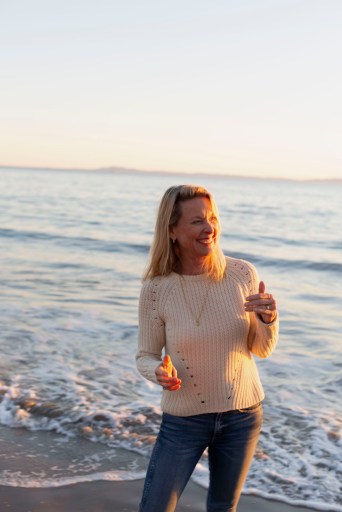Santa Barbara’s Rendy Freedman on ‘Supporting Our Adults’
AHA Program Offers Free Counseling for Teachers and Parents

Twenty-three years ago, the shooting at Columbine High School horrified the nation and put a spotlight on the perilous disaffection of teens. It brought about changes in school security, including metal detectors, guards, and police training. It inspired dozens of movies, TV shows, and books; thousands of articles; and millions of words. In Santa Barbara, it gave impetus to a program designed to address the social and emotional health of teens. The brainchild of two therapists, Rendy Freedman and Jennifer Freed, it began as a small summer workshop in 1999 and grew into a nationally recognized program. AHA! has now worked with more than 35,000 teens and 2,500 educators and trainers both within and outside the schools.
“We never set out to create a big nonprofit,” says Freedman. “We just followed the work and followed what was needed, and more and more teens joined our programs, and then we were invited to go into the schools, which led to an enormous impact.”
After two decades, Freedman will be transitioning from Clinical Director of AHA! in July. Her final initiative, “Supporting Our Adults,” is offering six free counseling sessions for both educators and parents/guardians of teens who are enrolled or will enroll in an AHA! program.
“Parents and guardians and educators need as much support as the youth,” says Freedman, “and they’ve been the most neglected in terms of getting the therapeutic help they desperately need without it being a cost to them.”
Although she will continue to do staff training along with Freed, it is fitting that Freedman’s last act as Clinical Director is a program that addresses a vital need for therapy.
In addition to her own practice, she is one of 37 national consultants for the Parnell Institute for EMDR, one of the premier institutes for training therapists in Attachment-Focused Eye Movement Desensitization and Reprocessing, known to be extraordinarily effective for dealing with trauma. “For most people,” says Freedman, “it’s more successful than talk therapy alone.”
Sign up for Indy Today to receive fresh news from Independent.com, in your inbox, every morning.
After moving in 1980 to Santa Barbara, where she has raised her three children, she became a therapist in 1994. She discovered her love of teaching at Antioch, and she was one of the founders of The Santa Barbara Waldorf School.
With a charismatic combination of competence, empathy, and grace, she’s a person you always want to be at the meeting — or anywhere that requires skillful listening and intelligent guidance. You’d also want her at the party because of her talent for fun and her sense of humor and great laugh.

After thousands of groups, workshops, meetings, fundraisers, and programs, a highlight for her has been the “Digital Cleanse” at El Capitan, where teens spend four days of immersion and connection through empowering fun and games. Another favorite — and one of AHA!’s most popular fundraisers — is “Sing It Out!” Led by Freedman and Jenna Tico, it returns after a two-year pandemic hiatus on April 24, when 12 teens will put on raucous, uplifting performances with a live band at the Lobero.
Freedman loves the way AHA! was able to pivot during the pandemic with virtual programs such as their “Heroes Assemblies,” where students listened to people such as Van Jones, Dolores Huerta, or Jeff Bridges talk online about what being a hero has meant to them. They then broke out into small groups to talk about what they’ve overcome or who’s a hero in their own lives. This allowed AHA! to work with hundreds of teens at once, with no geographic constraints.
Looking back, Freedman says she is proud of the success AHA! has had in the Carpinteria schools, where all students in the junior and high schools take part in programs that teach them the skills to make their schools — and the world — better, safer, and more supportive and inclusive. After a few years at the high school, they saw disciplinary incidents go down 70 percent, while test scores went up.
“We have found that if students feel more comfortable in themselves, safer with one another, and more relaxed, they’re going to learn better. That’s true for any of us.”
She would love to see AHA’s programs more solidly established in all the schools. “Because then you hit a greater diversity of students, which is really important for breaking down prejudice and hatred and bringing people together to understand one another. Required attendance in schools exposes all students to learning that can dismantle apathy, despair, and hate-based behavior.”
For more information on Supporting Our Adults, visit ahasb.org or contact AHA! Clinical Liaisons Julian Castillo at juliansean.ahasb@gmail.com or Ana Leyva at ana.ahasb@gmail.com.
Support the Santa Barbara Independent through a long-term or a single contribution.




You must be logged in to post a comment.